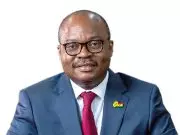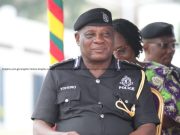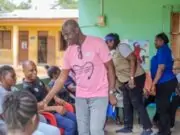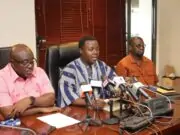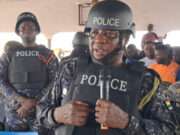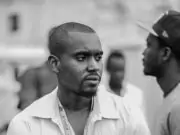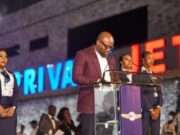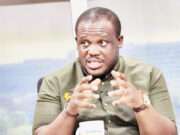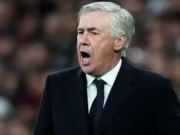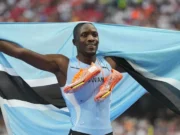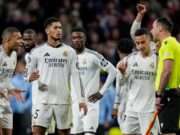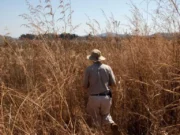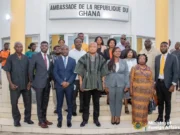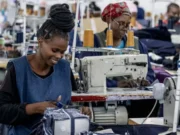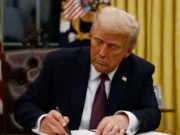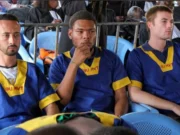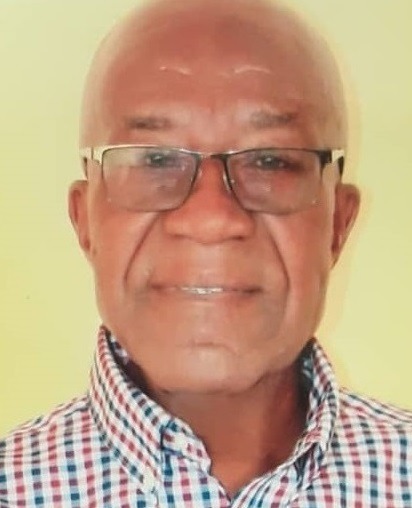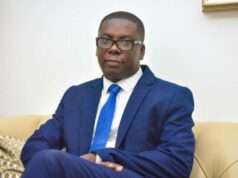By Ken Bediako
Those of us, luckily old enough to have witnessed Ghana’s first Military cum Police Coup d’état in 1966, may recall one of its by-product, namely the reorganisation of Ghana sports by the self-styled “liberators.”
Even though the sports loving Osagyefo Dr Kwame Nkrumah had put Ghana firmly on the global sports map, the liberators were not enthused. Ohene Djan, the celebrated Director of Sports was the main target. He was promptly sacked and a committee, headed by retired Police Commissioner Mr. A. A. Tibo set up to review the organisation of sports in the country.
Many keen sports analysts were shocked that the authorities had not taken into account the glaring progress in sports the nation had shown since Independence in 1957.
For instance, barely a year after Independence the new Ghana hit the sporting headlines in the 1958 Commonwealth Games in Cardiff, Wales. The news maker was Robert Kotei young Officer Cadet in Sandhurst who won High Jump bronze for Ghana.
Two years later Ghana went a notch higher by winning Olympic silver at the 1960 Rome Olympics, courtesy Ike Quartey Snr in the light welterweight division.
In another two years, Ghana swept six boxing medals at the 1962 Commonwealth Games in Perth, Australia-two gold and four silver. With six finalists, Ghana was adjudged the best amateur boxing nation in the Commonwealth.
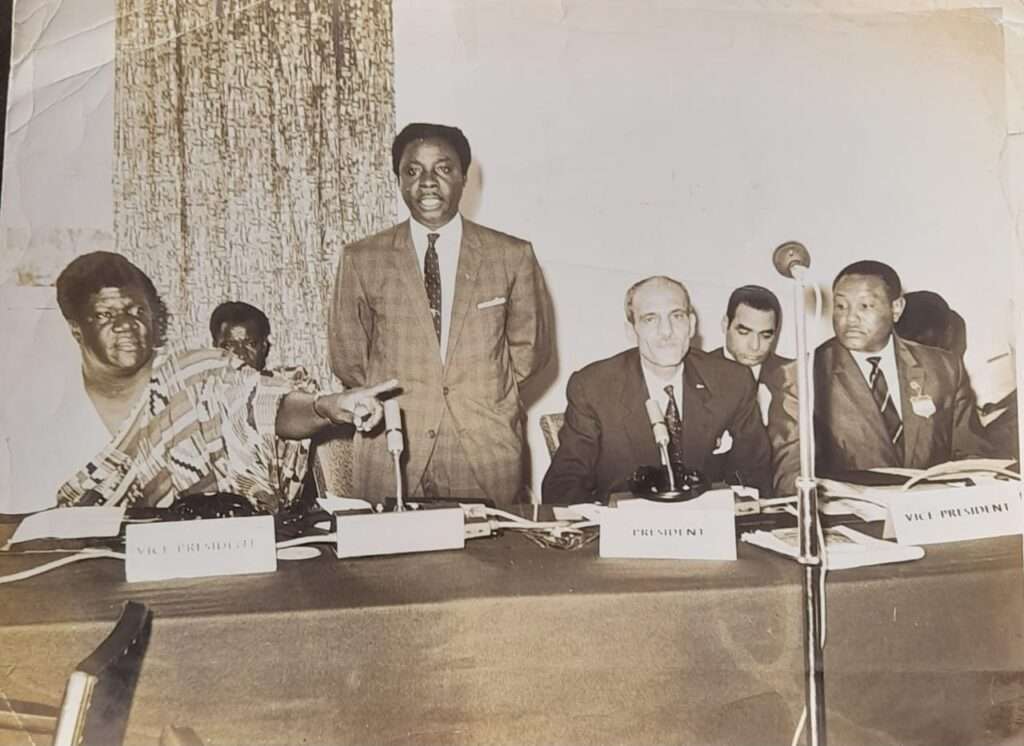
Lightweight Eddie Blay, and Lightwelterweight Ike Quartey Snr won gold.
The silver medallists were flyweight Cassis Aryee, Bantamweight Sammy Abbey, Middleweight Thomas Arimi, and Light heavyweight Joojo Myles.
Top headliner was Mike Ahey who did Ghana proud in athletics with a leap of 26.5 ft in the long jump and with it a new Games record.
Also to make Ghana proud was the men’s 4×100 yds relay quartet of B.K Mends, Bukari Bashiru, Mike Ahey and M. F. Okantey who turned out a fast time of 40.6 secs in the final race to share the new Games record of 39,4 secs with England.
The photo finish however indicated England a shade ahead making them the gold medal winners and the Ghana quartet the silver medallists.
The 4×440 yds quartet of J.A. Addy, E. Q Quartey, F. A. Owusu and J.A. Antwi won bronze.
On the home front the national football league introduced in 1958, was attracting huge patronage on Sundays and sporting fever was nationwide.
Outstanding players were emerging from all the regions.
We had the junior national football team called New Horizon. There was also the national Academicals team. At one stage, League clubs had to form junior teams that played curtain raisers for the senior teams.
Ohene Djan had succeeded in forming his pet idea of model club Real Republikans to be the nucleus of the Black Stars. In June 1961, the Black Stars went on six weeks’ tour of Europe namely former Soviet Russia, East Germany, West Germany and Czechoslovakia.
They also toured Kenya and Zambia.
All indications showed the nation had confidence in the Stars to shine in the then impending Afcon 1963 taking place in Ghana. True to predictions the Stars lived up to expectation and beat Sudan 3-0 in the final to win the Cup for the first time. After this triumph Ohene Djan turned the focus on professional boxing. In collaboration with the famous English boxing promoter Jack Solomons, Ghana staged her first World boxing title fight at Accra Stadium in May 1964. Local idol Floyd Klutei Robertson met Cuban born Mexican Sugar in a gruelling 15 rounder. The Mexican was declared winner in a close contest many thought Floyd deserved the verdict.
The following year, 1965 to be precise, a rejuvenated Black Stars featuring youngsters like Osei Kofi, Frank Odoi, John Naawu and Co retained the Africa Cup by beating Tunisia the hosts in Tunis.
Ii was not only football that kept fans awake.
Our track and field athletes and the boxers also made their presence felt at the first Africa Games in Congo Brazzaville, Senegal in Congo Brazzaville during the year.
Rose Hart won gold in the 80m hurdles and silver in the 100m.
Alice Anum won gold in the long jump and Habiba Attah won silver in the High jump.
The women’s sprints relay quartet of Alice Anum, Ivy Lamptey, Felicia Agyei and Rose Hart also won silver.
Two boxers Sulley Shittu and Steve Akushie won silver and two others Joe Darkey and Thomas Arimi won bronze.
Despite all these achievements the “liberators” who had overthrown the Kwame Nkrumah regime were not amused. One of the first things they did after the Coup was to appoint a powerful committee headed by former Police Commissioner A. A. Tibo to review the Organisation of sports in Ghana. Incidentally in the wake of the 59th anniversary of the maiden coup this week,
I have come across the Govt White’ Payer on the Tibo committee’s report and will publish excerpts from time to time.
Here we go:
“The government accepts the Committee’s. conclusion that owing to the very wide powers granted to Mr Ohene Djan, he became the sole director and controller of sports in the country, the policies of the Central Organisation of Sports (COS) being known only to himself. Having succeeded in creating a despotic administration, for himself and in the absence of clearly defined terms and conditions of service of employees of the COS, Mr Ohene Djan employed at will and removed persons from office at will without any means of appeal. He was not only partial in his treatment of staff and sportsmen but took capricious decisions affecting the whole of sports Organisation in the country. Some officers
of the COS were better treated than others and the basis for promotion and salary increment were haphazard.
The government also accepted the conclusions of the committee that under Mr Ohene Djan the finances of the COS were woefully mismanaged and not properly accounted for the period was marked by mal administration and intrigue and the sale of tickets at matches was a racket. While regional organisers lack funds to work with, Ohene Djan’s press interviews were usually rounded off with refreshments and cash payment to his press supporters.
In his thirst for self-aggrandizement and public adulation Mr Ohene Djan succeeded in building a certain image of himself to the extent that after sporting success there was a special tune on Radio.
Ghana played in his praise.
The Committee also came to the conclusion that although in the field of sports Ghana enjoyed a certain degree of success in the past especially with respect to the Black Stars, these successes were short termed and that no real provision was made by Ohene Djan for the long term needs of sports in this country.
Let me end here and continue next week.
Cheers everybody and keep loving sports.



